ROASTING specialty coffee and owning two cafes is a far cry from Daniel Smith’s life as a soldier dodging the spray of bullets in Afghanistan.
But the young Gold Coast veteran says starting First Fruits Speciality Coffee after leaving the Australian Army gave him the life outside of the Army he’s always wanted.
“When I returned I was one of the lucky ones,” the former private said. “During rehabilitation I stumbled across an opportunity to start my own business, incidentally unrelated to my military training and skills.
“It empowered me to take control of my life, and instead of returned soldiers having to apply for jobs and then suffering rejection after rejection, I truly believe they should be encouraged to set up businesses.”
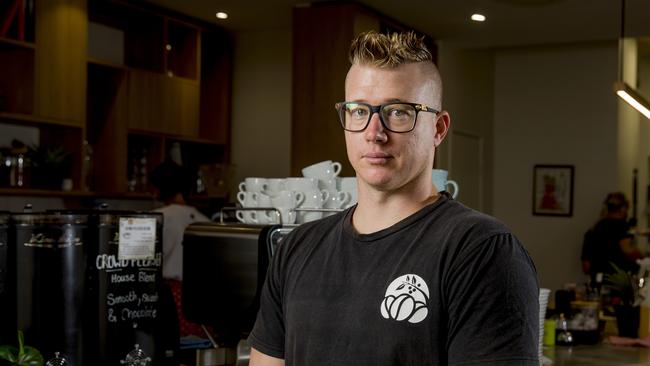
Mr Smith, part of the 6th Battalion, was part of Mentoring Task Force One (MTF-1), was a combined arms battle group formed by the Australian Army for deployment as part of Operation Slipper during the war in Afghanistan.
The operation included the first Australian combat deaths since the Vietnam War, and since October 2007, 41 Australian soldiers have been killed and 261 wounded, including two sailors and one airman.
MTF-1 was involved in more than 1700 battles, Mr Smith lost six comrades and his group suffered nearly 40 battle casualties.
One of his mates was standing next to Privates Tomas Dale, 21, and Grant Kirby, 35, when they were tragically killed by an improvised explosive device during an operation in 2010.
“To this day my mate still has a piece of the boys’ bones embedded in his body,” the 33-year-old said.
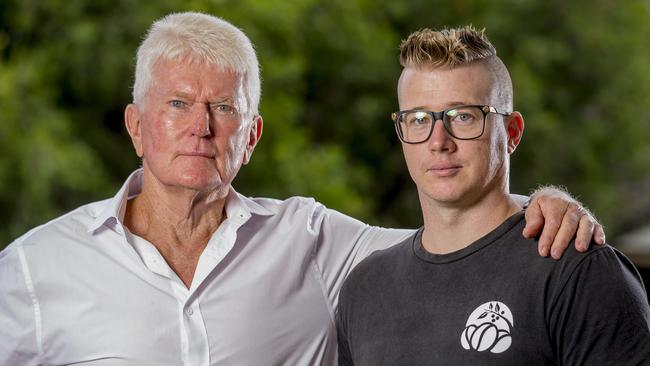
“It was a horrendous experience for so many soldiers, but I personally got spared a lot of craziness, that I feel very blessed for, but also guilty at times.”
Now a fully trained barista and father-of-three living in Carrara, Mr Smith left the Army in 2014 after joining as a 19-year-old. Unlike thousands of his former colleagues, he hasn’t spent years languishing in unemployment, applying for hundreds of jobs and being overlooked.
But he doesn’t take this for granted.
“So many boys go back (to the Army) because it’s too hard for them in civilian life and they just aren’t offered the right tools needed to reintegrate back into society. And those that are medically discharged often start a downward spiral that often ends in suicide.
“What they need to be offered is a pathway to owning their own business, a structured business plan including financial projections. A program helping vets to enter business ownership is the only way to empower them and give them the opportunity to thrive on their own terms.”
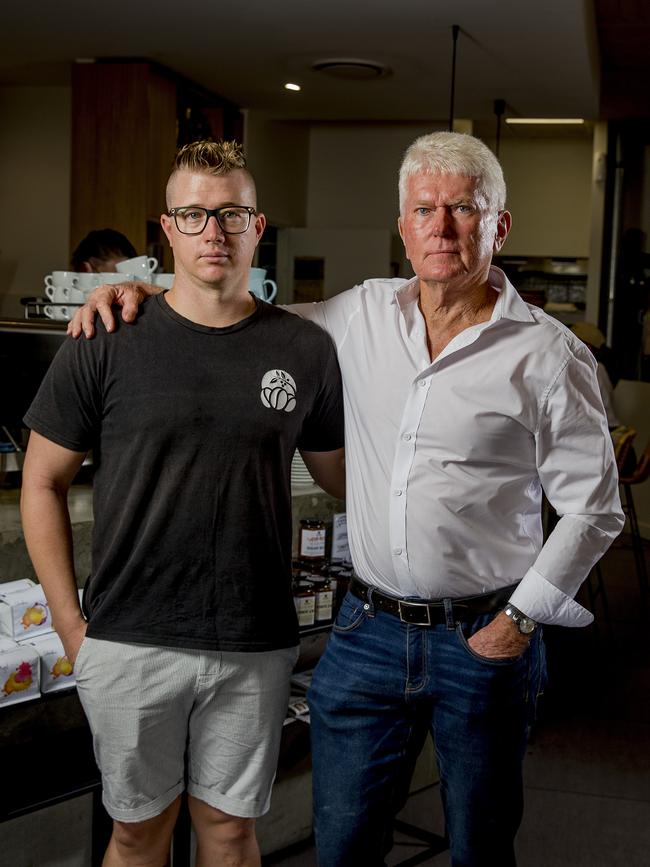
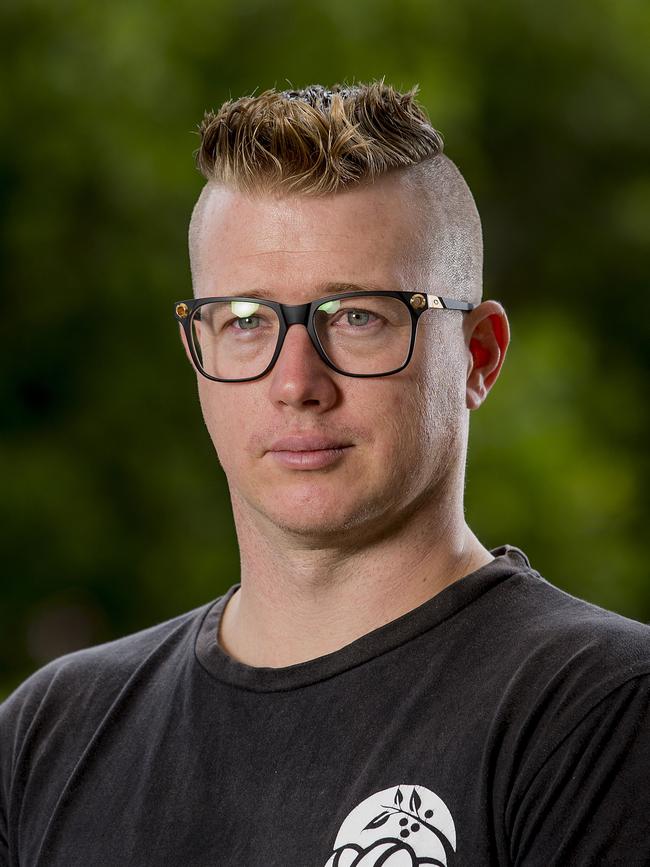
Mr Smith said he did not know one single returned soldier who had successfully transferred from defence into employment. All of the vets that were thriving owned their own business.
“Those who start their business are also using it as kind of a therapy, it’s giving them a purpose again. I honestly believe suicide, that is rife among returned soldiers at the moment, would be dramatically reduced if vets were offered a pathway to ownership.”
In addition to a more targeted approach, Mr Smith says the Department of Veteran Affairs (DVA) needed a complete overhaul because it was failing each and every returned soldier.
“Anyone thriving since leaving the Army faces the real threat that their pension might be taken off them, so there’s no incentive for people to get better, whether that’s emotionally or physically.
“But that’s just ridiculous, because the injuries we carry, both physically and mentally, occurred at our place of work. They can’t just suddenly stop supporting us.
“We’ll have these scars forever.”
SUPPORT SERVICES:
● Lifeline Australia 13 11 14.
● The Defence all-hours support line for ADF members and their families 1800 628 036.
● Open Arms all-hour free and confidential counselling and support for current and former ADF members and their families 1800 011 046, or through SafeZone on 1800 142 072.
———————————
He’s hoping the Royal Commission into veteran suicide will uncover the flaws in the DVA system, a toothless institution that he says is despised by almost every single returned soldier he knows.
However, he’s sceptical the commission’s findings will even be acted upon. Mr Smith said he and many other vets have lost all faith in the government’s ability to properly take care of returned servicemen and women.
“The system has failed us and is continuing to do so, in fact, veterans are so fed up with it they are starting up support groups and services themselves,” he said.
“Taking care of each other is what veterans have always done, it’s just disgraceful they’re also having to do it off the battlefield.”
COAST HEROES ‘GIVEN A BEGGING’ HAT AND TOLD TO GET JOB
THE worst thing you can do for a returned soldier is to tell them to get a job, says Gold Coast business trainer and veterans’ advocate Ian Grace.
“What we should be offering them in the first instance is a pathway to starting their own business,” he said.
Mr Grace said the unemployment rate of veterans and high rate of suicide was clear evidence that the current system of trying to get former soldiers to assimilate into the civilian workforce wasn’t working.
“Veterans are still tragically suiciding and large numbers are still unemployed,” he says.
“In fact the unemployment rate of veterans is about five times the national average.
“Prime Minister Scott Morrison says they are champions, they are heroes and then they are given a begging hat and told to go and look for a job.
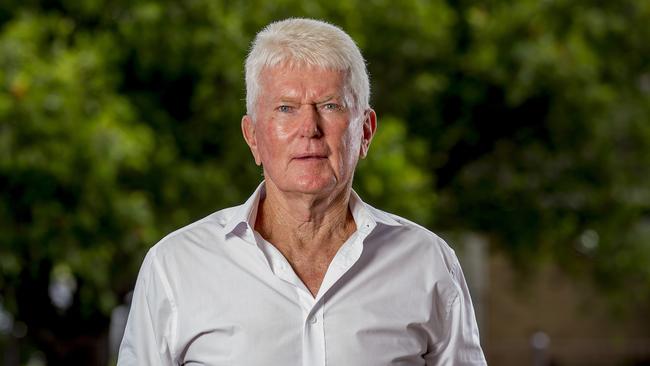
“Often the first rejection is one too many. They have been fighting for their country and now their country won’t give them a job and their own countrymen won’t give them a job. How demeaning.
“Why is the government insisting on asking vets to get a job they are not going to like and possibly hate?”
Mr Grace said the solution was “ridiculously simple”. Veterans should be encouraged to start their own business in the first instance, not after years of rejections or as an afterthought.
He suggests a program such as the New Enterprise Incentive Scheme (NEIS) which offers either a Certificate III or IV in Entrepreneurship and New Business.
“While the government often mentions that the NEIS is available, none of the veterans I’ve spoken to know anything about the program, yet once I explain it to them they all express great interest it in.
“Many vets are being held back, believing they don’t have it in them. Yet over the years I’ve trained more than 230 people, including some who had been out of work for two years, suffering innumerable rejections similar to our unemployed veterans.
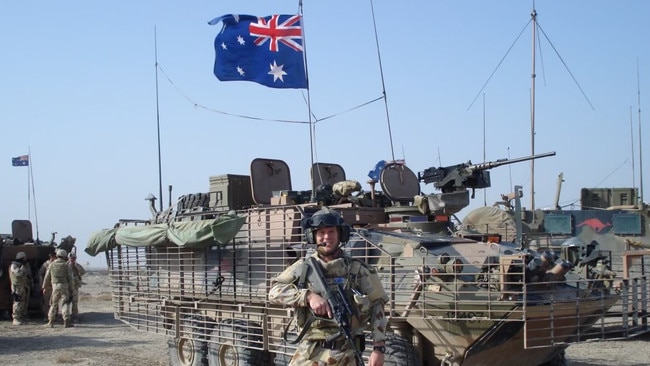
“The success rates achieved were incredible, with nearly 92 per cent of graduates going on to open businesses. These were people who’d never thought of doing so.”
Mr Grace said if for some reason the veteran shouldn’t proceed with the business they had done the business plan for as part of that process, the certificate would make them a valuable commodity.
He said the programs should also be tailored specifically for veterans, taking into account the camaraderie and strong bonds formed in the forces, most particularly in a battleground environment.
Mr Grace wrote to the Minister for Veterans’ Affairs and Minister for Defence Personnel Darren Chester asking him to consider promoting self-employment as a preferred employment option immediately. He was told that research veteran-owned businesses would start in 2022.
Mr Chester also outlined the government’s actions to prevent suicide across the nation, and said a further $101.7m was provided during the 2020-21 Budget to support the mental and physical health and wellbeing of veterans and their families. This included expanding a counselling service and its community and peer advisor program.
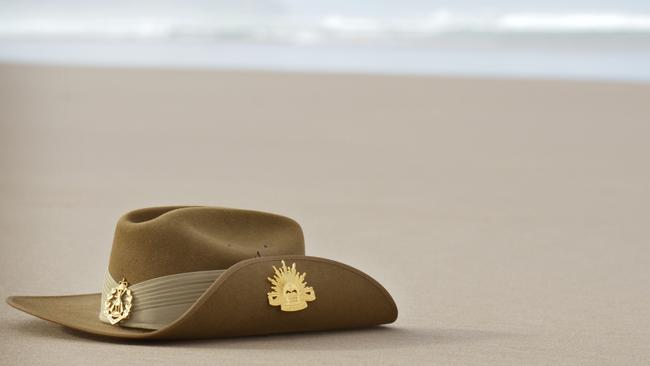
He also said the NEIS was available to veterans and that more money would be spent on increasing access to and funding for veteran small business and entrepreneurship over the next four years. In particular, personalised support to help veterans pursue self-employment and start a business for those who were planning to transition from ADF, while they were still serving.
In addition, last month Mr Chester announced veterans would benefit from specialised one-on-one support to help them find employment or change careers through the Support for Employment (SFE).
He said the program built on the government’s improvements on transition and employment support made in recent years and would deliver further pre-and-post employment assistance.
“Our ADF personnel have a great range of skills, expertise and a positive attitude to see them succeed in the civilian workplace. Simply put, hiring a veteran is good for business,” he said.
“In order to ensure our veterans are putting their best foot forward, the SFE will provide up to 10 hours of one-on-one support across a range of employment services, including resume writing, job seeking support, interview preparation and workplace adjustment.
“This will better support veterans to secure appropriate employment or change careers and is another step in the right direction as part of the government’s commitment to ensuring a successful transition for ADF members.”
FORMER CORPORAL BLAMES VETERANS AFFAIRS FOR ARMY SUICIDES
THE Department of Veteran’s Affairs (DVA) is a joke of a system and to blame for soldiers killing themselves, says a former corporal in the Australian Army.
“The DVA is 100 per cent an insurance department set on denying all soldiers claims in the first instance and if an appeal is made, only then do they look at it and maybe accept it,” Gold Coast-based veteran Shaun Spain said.
“The system is a complete joke and the paperwork is so long that trees are cut down to supply the DVA with paper.”
Mr Spain, 50, says it is taking up to two years for some returned veterans to find out if they are entitled to any financial compensation from the Australian government.
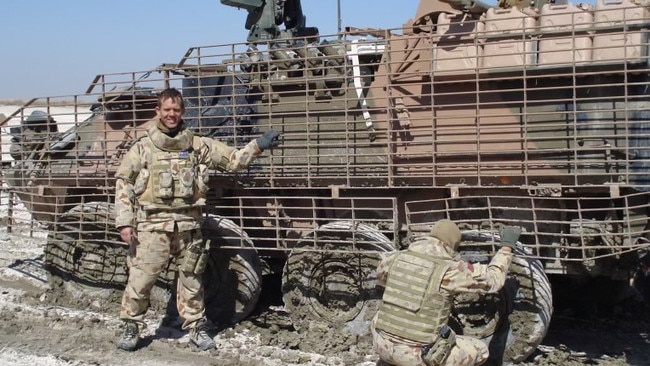
Men and women who’ve dedicated lives to serving their country are being made to live in chronic pain, without a clear pathway to reintegrating into civilian life, because the DVA refuses to fund essential rehabilitation equipment simply because the paperwork hasn’t been approved, he says.
“Soldiers kill themselves when they get told their claim has been denied and they can’t get help. It’s an absolute disgrace.
“Since 2001, 712 soldiers have taken their own lives. What’s it going to take? Another 700 deaths?”
Mr Spain says he is sick of politicians sending people off to fight in wars, only to do little when they return injured.
Every month he says he’s forking out money to pay for a heated pool in Nerang to help with his injuries because he’s not covered by the DVA, despite the fact he was wounded serving his country.
“We had this (help) when we served, but once discharged we don’t and to try to get help the paperwork we have to do is seriously ridiculously so we end up giving up.”
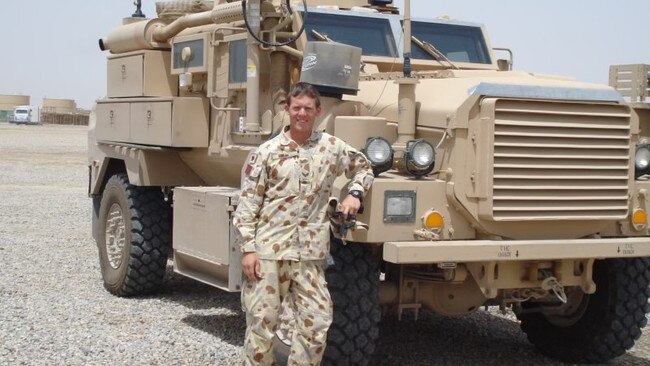
To anyone still serving, Mr Spain makes a point of urging them not to sign their medical discharge papers until all their compensation claims were accepted by the DVA. He says he did not do it and regrets it.
“Too many other soldiers haven’t done this and now some are homeless, some have had marriage breakdowns, and many more grown men have had to move back in with their parents because the system is failing them.”
SERVING HIS COUNTRY
A country boy from NSW, Mr Spain was a mechanic before he joined the Australian Army in 1999 at the age of 28. He quickly fell in love with the camaraderie and defence lifestyle and chose to become a corporal, a non-commissioned role. During his 15-year military career he took part in five tours of duty overseas, three at East Timor and one each at Iraq and Afghanistan. Alongside dozens of his comrades he took part in rebuilding infrastructure and helping others in war-torn countrysides.
“We never deploy to change cultures, we deploy to rebuild and bring peace and helping kids in these countries that peace is possible. I do get very emotional knowing I was part of something big, to serve your country proudly and knowing you help children as they are the future in rebuilding their own countries and living in peace and having their own culture resorted.”
But with the good came the absolute worst, seeing children killed, picking up dead bodies and putting them in body bags only for their decomposed bodies to disintegrate in his hands.
“One guy I was picking up literally fell apart on me, that stuff sticks with you. It’s the smell also, it stays with you forever.
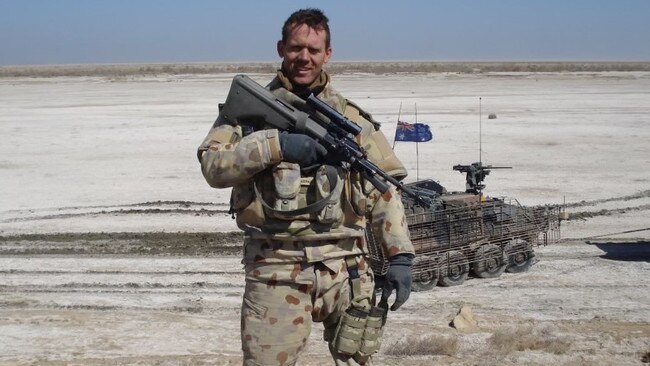
“If you’ve served overseas you’ve seen some things. But just because there’s no one in the field witnessing you get shot at, witnessing you seeing kids covered in blood and watching as you had to pull bodies out of wells with limbs falling off, it doesn’t mean it didn’t happen.
“We should haven’t to prove what we’ve been through in order to have our claims accepted by the DVA.”
Mr Spain says solders still serving are too scared to reach out for psychological help because, although appointments are supposed to be confidential, anyone that speaks up is usually red-flagged.
“I was supposed to be deployed but I was going through a few personal issues at home and sought help, the next thing you know I’ve been overlooked for deployment. Conversations are meant to be private and confidential, but they’re not.
“Most serving soldiers, including some of my mates, have private psychologists they see outside of work because they know they can’t speak up internally.”
MEDICALLY DISCHARGED
When Mr Spain was medically discharged in 2014 his life was thrown into chaos, both physically and mentally. Because of his injuries he needed numerous surgeries and was eventually diagnosed with post-traumatic stress disorder (PTSD).
He says when you’re in the Army everything is covered, but when you leave the financial strain is crippling. His pension is about 75 per cent of the $50,000 he received in the Army ($65,000 including entitlements), making everyday life a struggle particularly with the cost of medications and medical appointments.
As a civilian he averages about two-to-three hours of sleep a night and sometimes he doesn’t get any. But it’s the PTSD he says he struggles with the most. That and not feeling valued in society.
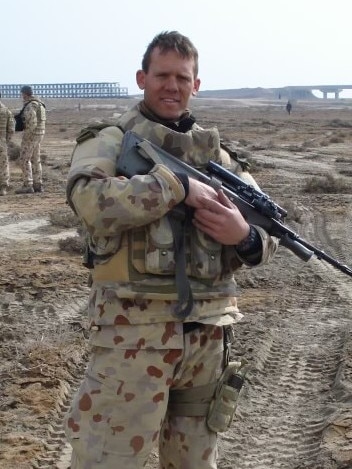
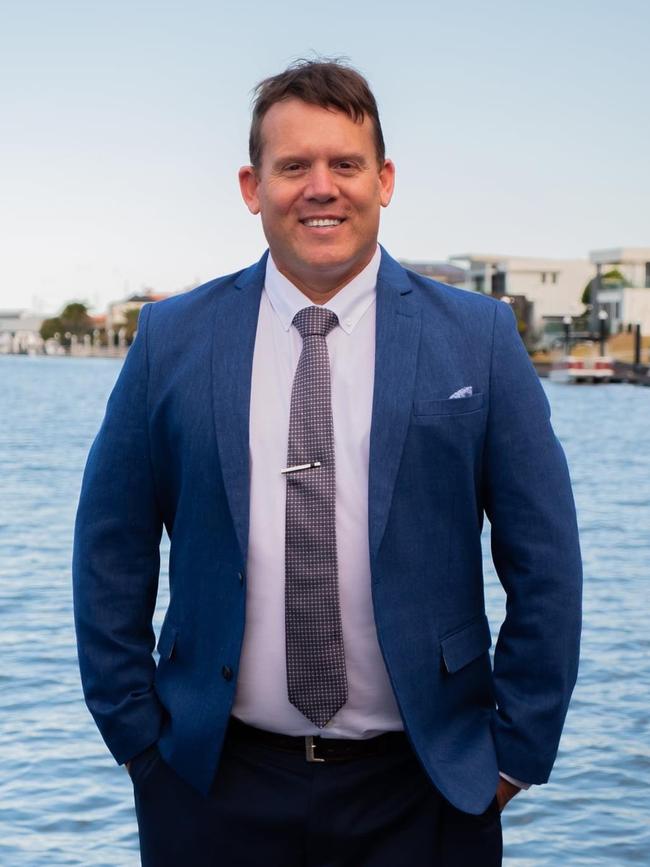
“I’ve been in some pretty dark places trying to adjust to civilian life. No one would hire me because of my injuries, my marriage was over and it felt like I was alone and without any support.
“All we veterans want is a purpose, to help others, it’s ingrained in those of us who serve our country. But a lot of us are also loners and it takes a lot for us to open up to others.
“We have to have a purpose in life otherwise we’ll just fade away to nothing.”
Despite hundreds of attempts to get work, Mr Spain says he was considered a walking liability by potential employers and was thrown on the scrap heap.
FINDING A PURPOSE
Without a job, surviving on a meagre pension and with little tangible practical support from the DVA system, last year Mr Spain took a leap of faith and decided to set up Bespoke Gold Coast Realty. He says it’s the only reason he gets out of bed each day.
“Helping people in real estate keeps my feet from stepping into a coffin. But the DVA system will most likely kill me also because the system takes all our entitlements once we are found to have a part-time job or start to work. We can very quickly and easily lose our entitlements for the help we need.”
So far this year he’s completed 500 appraisal at no cost, just to help people and to feel valued as a person again. In his eyes he’s serving his country despite not being in a uniform.
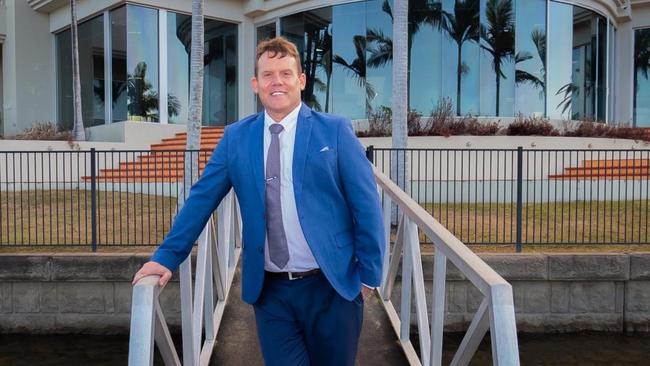
More often or not his advice is for people not to sell, instead seek financial advice. Despite his business being in the red, he still donates a large chunk of any money he makes to Mates4Mates, a service that provides physical, psychological and social support services to former and current defence personnel.
“This isn’t about making money, although it all helps, it’s about helping others,” he says.
“Some soldiers will never be able to work again due to their injuries and issues. However, if I can show others that it’s possible maybe I can save that one person, or save that one marriage.
“I work for myself because I need to have purpose, but I also work for myself because no one wanted to give me a fair go because I still have medical appointments and need physiotherapy and ongoing help.
“As soldiers we are proud but we don’t want a handout, we just want to be given a fair go.”

Add your comment to this story
To join the conversation, please log in. Don't have an account? Register
Join the conversation, you are commenting as Logout
The anti-light rail brigade has finally met its match
For years the transport debate has been dominated by a noisy anti-light rail minority. Not any more, writes Ann Wason Moore
Council finally solves mystery of the Gold Coast’s winter stench
Council have found the reason why a putrid smell has been infiltrating the Gold Coast’s northern suburbs over winter. Find out here